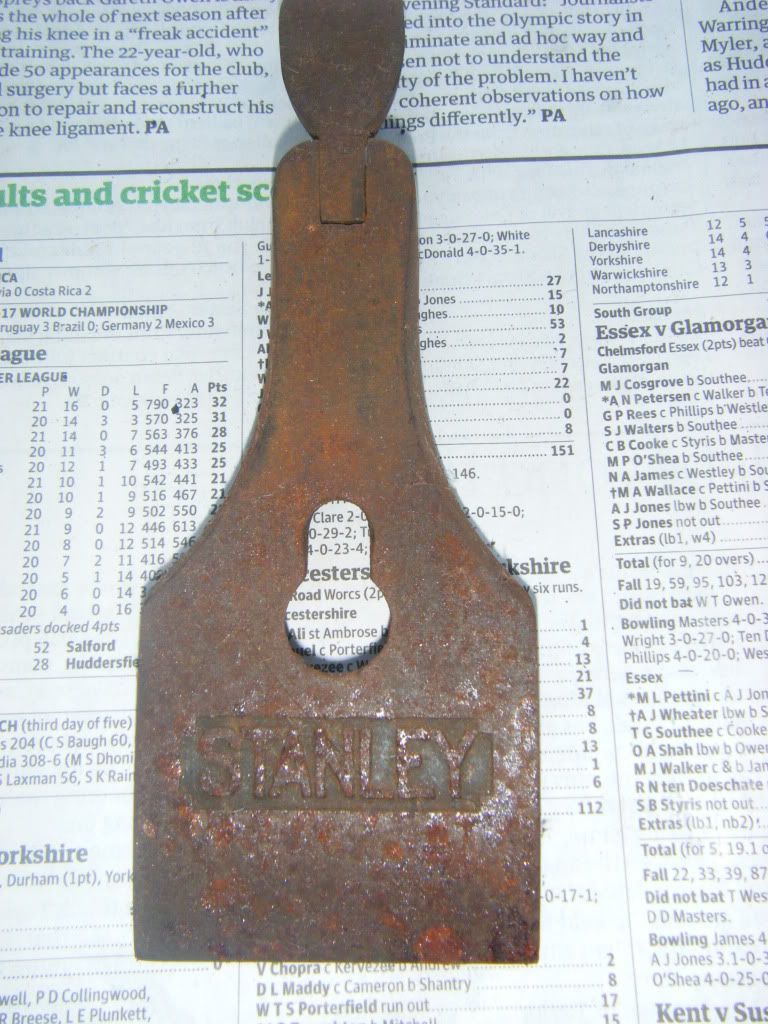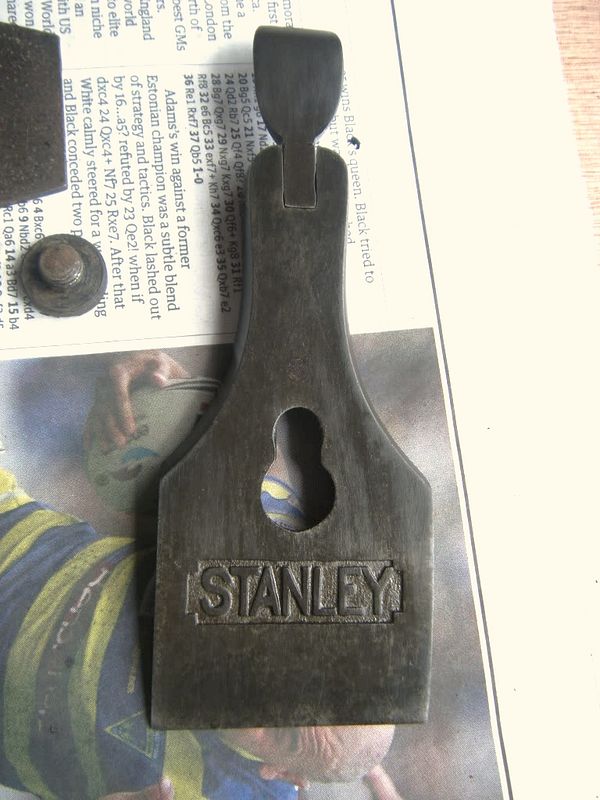Scouse":3loyxc1q said:I've done the electrolysis now; I followed the advice of Seaco, thanks by the way, and it worked like a dream. I just got an old 12V model railway power unit and set to work. It worked so well, in fact, that I have got another power unit to run two systems at the same time. Here's a link to the thread I started about tool renovation, the electrolysis is towards the bottom of the page.
old-tool-renovation-wip-t52432.html
El.
At last someone that hasn't killed themselves using electrolysis...YAY!... :wink:






